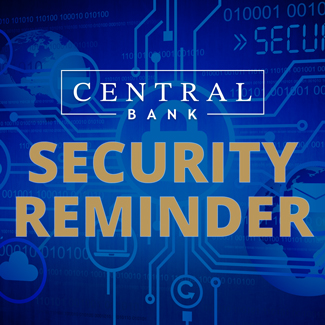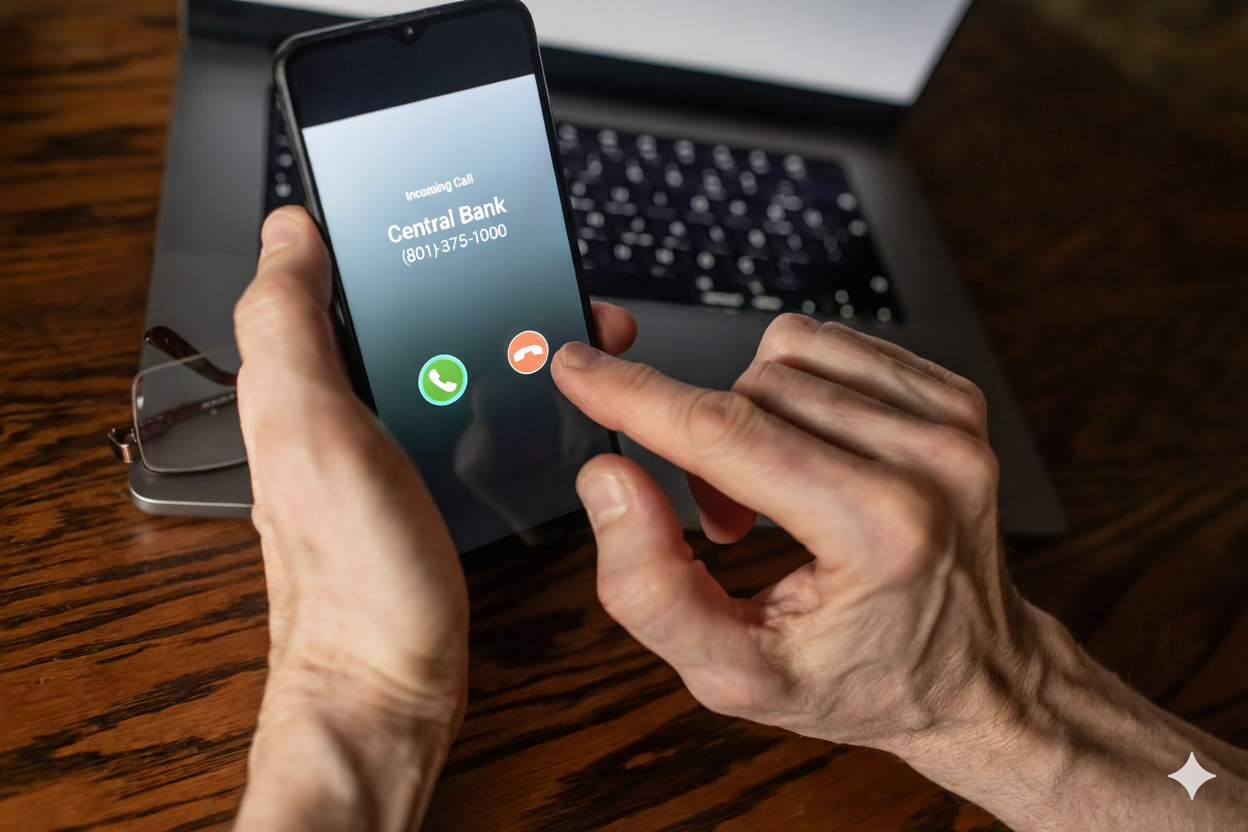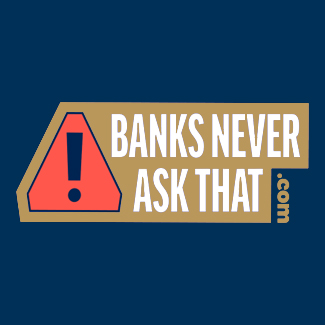
Resources ·
Central Bank's Security Center
Fraud is clever. So are you! - Educate yourself. Trust your instincts. Call us (801) 375-1000.
Central Bank takes customer information and security very seriously. It is our top priority to make sure we provide the best modern technology and tools to best serve our customers while protecting the personal account information of each individual. As we do our part to protect our customers and their information, we also encourage you to learn and understand possible scenarios and security threats in order become more savvy and protected.
Please take a moment to review the information in the Central Bank Security Center.
Frequently Asked Questions

Protecting Seniors
Protecting Seniors from Scams
Central Bank is dedicated to protecting seniors and families from fraud, scams, and financial exploitation. Learn how to recognize scams, spot red flags, report fraud, and protect your money.

Banks Never Ask That
Don't Fall for Fake! Learn to Protect Yourself Against Phishing Scams.
Last year, scammers stole over $8.8 billion from regular people like you. Don’t become their next victim. Get scam smart by watching for these five red flags of phishing in emails, phone calls, and texts:
Red Flag 1 – They ask you to open a link.
Red Flag 2 – They use urgent or fear-inducing language.
Red Flag 3 – They send an attachment.
Red Flag 4 – They request personal info like PINs, passwords, or social security numbers.
Red Flag 5 – They pressure you to log into or send money with, payment apps.
Learn more about scam safety by downloading the Banks-Never-Ask-That PDF from the American Bankers Association

Security Reminder
Contact us at 801-375-1000 or 801-655-2202 for any security questions, reports, or inquiries.
At Central Bank, we are constantly focused on customer security. In the digital world in which we live, security is a responsibility we all have. We want to pass on a few security reminders to help keep your personal banking information secure:
• If you receive a call, email, or text message from someone claiming to be from Central Bank and you are not sure if the contact is legitimate, end the conversation and call us at, 801-375-1000 or 801-655-2202. If the contact is legitimate, we will make sure to get you with the right person.
• Central Bank employees will not ask you for your security questions in a call, text, or email that we initiate. Those are in place for when you call us.
• Central Bank employees will never CALL, TEXT, or EMAIL you to ask for your social security number, account number, username, password, PIN, telephone number, or other account information.
• Monitor your accounts regularly and reach out to us if you notice anything unusual.
• Make sure your contact information at Central Bank is current – that way if we notice anything unusual, we can inform you quickly.
• Have a strong and unique password for your online and mobile banking that you change regularly and don’t share with others.
• Don’t click on links in emails, text messages, or online that you are not familiar with.
Your security is a top priority for Central Bank. If you have any questions, please don’t hesitate to reach out to us. We would love to talk to you.

Phishing
What is Phishing?
Phishing is a cybercrime in which a target or targets are contacted by email, telephone or text message by someone posing as a legitimate institution to lure individuals into providing sensitive data such as personally identifiable information, banking, and credit card details, and passwords.
Scammers often use email, text messages, or phone calls to trick victims into giving them personal information.
Learn more about phishing and how you can protect yourself.

Bank Impersonation Scams (Calls, Texts, Spoofed Caller ID)
What is a Bank Impersonation Scam?
Bank impersonation scams targeting Central Bank customers are spiking. Central Bank will never call or text to ask for your passwords, PIN, or one-time passcodes. Fraud is clever, but so are you. Learn to spot red flags, report fraud, and protect your money.

Check Fraud
Check fraud is on the rise. Learn how to protect yourself.
Learn how to prevent check fraud and check washing. Get mailing tips, gel ink guidance, Positive Pay for businesses, and step-by-step instructions if you are a victim.





 Fraudsters are proactively calling and texting Central Bank customers posing as bank employees and asking for personal and account information. Calls and texts may even appear to come from our Central Bank phone number, (801) 375-1000.
Fraudsters are proactively calling and texting Central Bank customers posing as bank employees and asking for personal and account information. Calls and texts may even appear to come from our Central Bank phone number, (801) 375-1000.